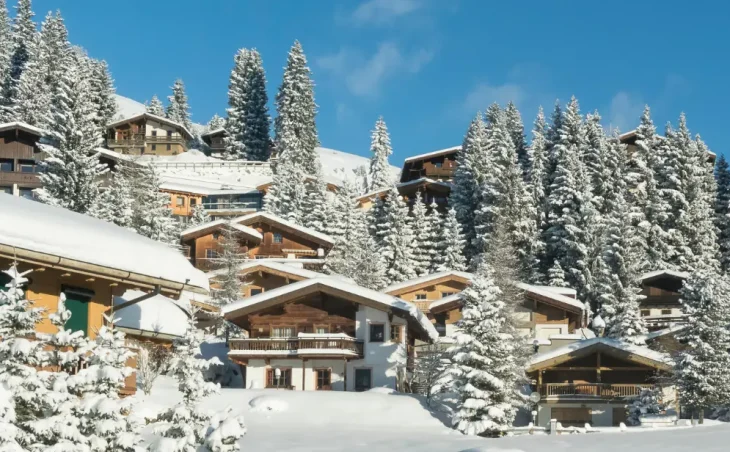About eight years ago, when I was still publisher of the Skier & Snowboarder magazine, I collaborated with Angus Kinloch, the MD of Ski Line, to put together an article highlighting the increase in the number of scammers advertising fake ski and snowboard holidays either through fake online advertisements or on sophisticated websites designed to look like legitimate holiday companies.
The article explained how scammers ‘steal’ genuine details and images of chalets etc from other ski holiday websites to use on fake websites and then promote ‘too good to be true’ holiday offers at attractive prices.
The scammers encouraged skiers and snowboarders to call or email, rather than make the booking online and would be warned if they didn’t book immediately they would lose the deal. Instructions would be given to send a deposit – or sometimes the full amount – usually using some kind of money transfer service.
We warned how in the worst cases, people didn’t even know they had been defrauded until they turned up in a resort to find their booking didn’t exist.
During my own research, a trading standards officer explained how difficult it is to track down these scammers as they are often based in another country and their website details are hidden behind a series of different servers.
Plus, I discovered it could often take months, or even years, to get fraudulent websites taken down. And alarmingly, a website specialist demonstrated how even when these bogus sites were identified and removed, the scammers could build a new website and be up and running again within 15 – 30 minutes!
The point of our article was to warn skiers and snowboarders about this type of scam and act as a reminder as to why they should always check they are dealing with a legitimate and bonded holiday supplier – such as Ski Line!

Angus also produced his own warning for Ski Line clients at the time which you can read by clicking here
At the end of the article, he also warned about fake online reviews – and the point of this blog is to warn skiers and snowboarders that these phoney posts have now become an even bigger problem.
The rapid growth of different kinds of online platforms means there are many places for people to issue praise or air their grievances online, and determining the exact percentage of fake reviews has become more of a challenge.
Fake Online Reviews research carried out by Alma Economics on behalf of the department for business and trade in 2023 estimated a £50 million to £312 million annual cost in terms of the harm it caused to UK consumers.
However, this estimate does not include the impact of fake reviews on consumers who purchase services or the separate impact of inflated star ratings (which often accompany fake reviews). As a result, this is a conservative estimate and the true disadvantage to consumers arising from fake reviews is likely to be higher, claimed the researchers.
A large percentage of skiers and snowboarders now look at accommodation and destination reviews before making a decision to book a trip, but, as already outlined, these studies have found that a significant portion of online reviews are fake. Trusting them can be risky and here’s why.

Bias and manipulation
Some platforms may have rigorous verification processes in place, while others allow anyone to leave a review. This enables companies or individuals to manipulate assessments to boost their ratings artificially. This may involve ‘persuading’ customers through incentives to leave upbeat reviews or getting friends and colleagues to leave positive posts, or even negative feedback about competitors, which further complicates the trustworthiness of online reviews.
There are also stories of accommodation providers being ‘threatened’ by customers that if they don’t provide some kind of refund on a booking – even when there hasn’t been a problem – they will post negative reviews.
Skewed results
Online reviews rarely represent the experiences of all customers. People are more likely to leave a review if they have had extremely positive or negative experiences. This tends to skew the overall perception of a product or service. Additionally, certain demographics may be overrepresented in online reviews.
Personal preferences
A product or service that works well for one person may not necessarily work well for another due to differences in expectations or personal preferences.
Despite these challenges, online reviews can still provide valuable insights when approached critically. Look for patterns across multiple reviews, pay attention to the details provided, and consider the credibility of the reviewer.
Some platforms offer features like verified purchase badges or user verification, which can help increase the reliability of reviews. Ultimately, it’s essential to use online reviews as one of several tools in your decision-making process.
The bottom line is, in my opinion, you are much better off getting your information from a trusted expert.
Significant Portion Of Online Reviews Are Fake Says Study: A Summary
About eight years ago, while publishing Skier & Snowboarder magazine, I collaborated with Angus Kinloch from Ski Line to expose the rising scam of fake ski and snowboard holiday deals online. These scams involved creating fraudulent websites using real details and images from legitimate sites, then offering “too good to be true” deals to lure victims into sending deposits via money transfers. Our article aimed to warn readers and advise verifying holiday suppliers’ legitimacy. Additionally, we highlighted the growing issue of fake online reviews, which can mislead consumers and distort perceptions. Fake reviews often incentivized or posted by friends, can inflate ratings or unfairly harm competitors. Despite challenges, online reviews remain useful if approached critically, but trusting experts is often more reliable.
Chat with our experts
For tips and advice on booking your next ski holiday, call our expert sales team on:
020 8313 3999 All Ski Deals
All Ski Deals
